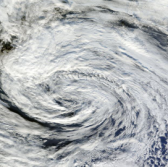 IBM and AECOM have collaborated to develop a new United Nations scorecard designed to help local government agencies and cities build up resilience and reduce risks associated with natural disasters and climate change.
IBM and AECOM have collaborated to develop a new United Nations scorecard designed to help local government agencies and cities build up resilience and reduce risks associated with natural disasters and climate change.
Both companies worked with the U.S. Agency for International Development and the European Commission to create the UN Disaster Resilience Scorecard for the UN office for disaster risk reduction, IBM said Tuesday.
The scorecard that launched Tuesday at the Global Platform for Disaster Risk Reduction provides several assessments that cover environmental, planning and policy, financial, social and organizational areas of disaster resilience and seeks to help local agencies monitor and evaluate the implementation of the Sendai Framework for Disaster Risk Reduction: 2015-2030.
The Sendai Framework is a global strategy that seeks to reduce losses from disasters.
Ben Smith, director of sustainable development at AECOM and the scorecard’s co-author, said the scorecard seeks to help cities develop action plans, facilitate discussions and prioritize investment to boost their resilience.
Approximately 200 cities worldwide plan to adopt the new scorecard over the next few months as part of UNISDR’s Making Cities Resilient Campaign.
The new scorecard is based on UN’s Ten Essentials of Disaster Resilience and seeks to replace a UNISDR self-assessment tool used by local government authorities.




